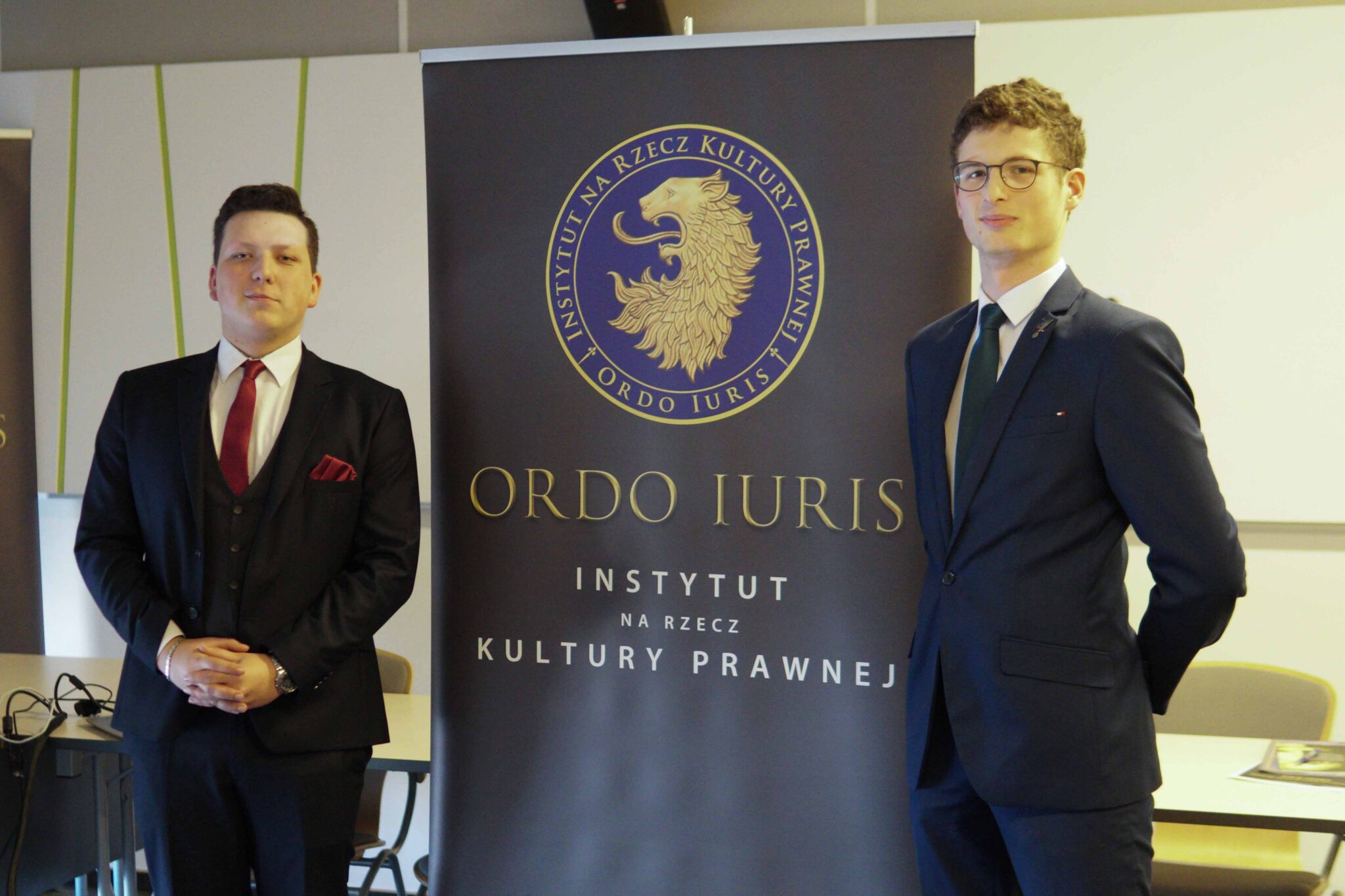The following article appeared originally on the Ordo Iuris Institute for Legal Culture’s website.
Over a year has passed since Donald Tusk’s latest government was established in Poland.
• There have been a number of violations of the law in Poland during this period, including, among others, violations of the constitutional principles of a democratic state of law, adherence to the law, and the state’s relationship with the churches and other religious institutions. Despite this, the ruling Left-liberal coalition in Warsaw, along with their allies in Brussels – including the European Commission – refer to it as a “restoration of the rule of law.”
• The Ordo Iuris Institute has prepared a report summarizing the first 12 months of rule by the EU-supported Left-liberal coalition, which on December 13, 2023, succeeded eight years of conservative governments. During those eight years, while in opposition, the current governing coalition repeatedly accused the Law and Justice-led United Right coalition of violating the rule of law and democratic principles. These accusations even persuaded Brussels to impose financial sanctions on Poland.
• The authors of this report describe the current Polish government’s numerous transgressions of the law, such as violations of the independence of judges, the takeover of the National Prosecutor’s Office, unlawful changes in the management of the public media, the attack on the Independence March Association, infractions surrounding the arrest of Rev. Michal Olszewski, and the issuance of guidelines aimed at potentially expanding the options for legal abortions contrary to Poland’s laws and constitution.
• Never before since the end of Communism in the years 1989–1990 had the rule of law been so overtly trampled on in Poland. Prime Minister Donald Tusk has even admitted that his government sometimes has to break the law, referring to it as “militant democracy.”
READ THE FULL ORDO IURIS REPORT HERE (PDF)
Following the Polish parliamentary elections of October 15, 2023, a new Council of Ministers was formed out of a coalition of the Civic Coalition (KO), Poland 2050, the Polish People’s Party (PSL), and the Left party and was appointed on December 13, 2023, following eight years of rule by the Law and Justice-led United Right coalition. The new Polish government, which is headed by Donald Tusk, acts on the basis of ad hoc resolutions passed by the parliamentary majority it controls, informal “guidelines,” and the opinions of sympathetic lawyers and has perpetrated numerous unlawful acts in an effort to eliminate the opposition from the public space. These schemes were undertaken under the cover of the illegally and forcibly-seized public media, alongside those private television companies that are friendly toward the new government, as well as with the support of representatives of the European Union. These measures have harmed the very foundations of our democratic state of law, leading to a revolutionary new order based on “transitional justice” – or, as Donald Tusk himself has called it, “militant democracy.”
What is in the Ordo Iuris Institute’s report?
In the report’s chapter on the takeover of the public media, Legal Counsel Bartosz Zalewski, PhD describes the resolution that was passed by the lower house of the Polish Parliament “on the restoration of legal order and the impartiality and integrity of the public media and the Polish Press Agency.” This led Polish Television, Polish Radio, and the Polish Press Agency to be placed, through the use of force, under the control of individuals claiming to be the new chairmen of their supervisory boards. This operation was carried out under the direct orders of Culture Minister Bartłomiej Sienkiewicz, who bypassed existing broadcasting laws by formally declaring them in liquidation, while publicly admitting that this was not a genuine liquidation. Bartosz Zalewski explains that these changes in the public media’s staffing were carried out illegally, as they were an encroachment on the powers that exclusively belong to the National Media Council. Moreover, public broadcasting companies should never have been put into liquidation without prior statutory amendments to the existing broadcasting laws.
The Ordo Iuris report further shows how Minister of Justice Adam Bodnar has been pressuring the judiciary by attempting to dismiss the presidents and vice presidents of some of the courts, also in violation of existing laws. In its ruling on October 16, 2024, the Constitutional Tribunal stated that dismissing court presidents and vice presidents without the participation of the National Council of the Judiciary constitutes a violation of the constitutional guarantees of judicial independence. Ordo Iuris analyst Jędrzej Jabłoński likewise shows that the Minister of Justice’s actions are a clear example of an infringement of the principle of separation of powers, and can be considered as a form of political pressure aimed at ensuring that the judiciary remains amenable to the government’s actions. The relentless questioning by Adam Bodnar of the existing procedure for electing judges to the National Council of the Judiciary has further weakened the rule of law in Poland. It is exploited by Donald Tusk’s government as an excuse to deem illegitimate all those judgments which were issued by judges who were appointed to their positions after 2017 – albeit only in those cases where these judgments were not those favored by the current ruling coalition.
Legal counsels Marek Puzio and Patryk Ignaszczak, for their part, describe the takeover of the Prosecutor’s Office in blatant disregard for the provisions of Poland’s Law on the Public Prosecutor’s Office. The government ignored the required procedure for dismissing the National Prosecutor in the person of Dariusz Barski, for which the President of the Republic of Poland’s written consent was necessary for it to take effect. In place of the National Prosecutor, the institution of an “acting national prosecutor,” a role totally unknown in Polish law, was established and the position was then given to Jacek Bilewicz. In the end, Prime Minister Donald Tusk appointed Dariusz Korneluk as National Prosecutor, albeit without obtaining the opinion of the President of the Republic of Poland, which is required by law.
Also in the report, Legal Counsel Katarzyna Gęsiak describes how Poland’s constitution and laws are being circumvented by the Tusk government in order to make abortion on demand a reality. In fact, in July 2024 the Sejm – the lower house of Poland’s Parliament – rejected a bill that would have de facto legalized abortion on demand. In view of this, in September Health Minister Izabela Leszczyna iissued instructions to doctors in the form of guidelines, simultaneously threatening heavy financial penalties for doctors and hospitals that refused to comply. Katarzyna Gęsiak points out that these guidelines have no legal status and thus cannot impose an obligation on doctors to apply them. On the contrary, they expose those doctors who do follow them to civil, criminal, and disciplinary liability.
Ordo Iuris board member Łukasz Bernaciński, PhD then exposes the way in which Education Minister Barbara Nowacka’s actions since her first day in office have been aimed at, among other things, lowering the reputation of religion classes in the schools and discouraging students from attending them. Bernaciński comments on a decree issued by the Ministry of Education in this regard, reducing the number of hours of religious instruction and scheduling this class in either the first or last lesson hour of the school day. He points out that, under Polish law, carrying out such changes can only take place with the approval of the Catholic Church as well as other religious institutions, which did not happen in this case. For this reason, on November 27 Poland’s Constitutional Tribunal ruled the decree unconstitutional. However, the Polish government has refused to comply, as it no longer recognizes the authority of the country’s constitutional court.
The Independence March Association has likewise been attacked by Donald Tusk’s government. These attacks have included the refusal to grant the Independence March the status of a periodic assembly despite the fact that it is held every year, as well as Warsaw Mayor Rafal Trzaskowski’s refusal to approve the March’s organization in 2024. Moreover, in September police raided the Association’s headquarters, searching its premises on the order of the Prosecutor’s Office and confiscating, among other things, electronic equipment, including devices belonging to other organizations that are based in the same facility.
Elsewhere, Adv. Jerzy Kwasniewski, the President of the Ordo Iuris Institute, describes how the parliamentary mandates of two opposition MPs, Mariusz Kaminski and Maciej Wąsik, were unduly terminated. The Speaker of the Sejm, Szymon Holownia, made the decision due to previous infractions, even though both MPs had been pardoned by the President of Poland and were not listed as convicted persons in the National Criminal Register. As a consequence, the Speaker of the Sejm unjustifiably suspended the voting rights of MPs Maciej Wąsik and Mariusz Kamiński. He did so despite the fact that his decision to terminate their mandates had previously been overruled by the Supreme Court’s Extraordinary Control and Public Affairs Chamber.
Additionally, Advocate Nikodem Bernaciak describes how opposition MP Marcin Romanowski was detained on the order of a prosecutor acting under the authority of Justice Minister Adam Bodnar, ignoring the fact that he not only has immunity as a parliamentarian (which had previously been waived by the Sejm), but also separate immunity as a member of the Parliamentary Assembly of the Council of Europe (PACE). Bernaciak notes that the procedural violations committed by those officers and officials who are subordinate to Adam Bodnar in the Marcin Romanowski case go beyond the national level, as they violated international conventions as well.
The report likewise addresses the legal infractions that were perpetrated in the case of the detention of Rev. Michal Olszewski. According to the accounts of both the detainee and his defense attorney, Father Olszewski repeatedly received terrible treatment from the authorities: he could only contact his lawyer with difficulty, he was kept handcuffed for no reason, food was denied to him for dozens of hours, and his use of the restroom was impeded. Adam Bodnar’s prosecutors also attempted to unlawfully deprive Father Olszewski of his lawyer, Krzysztof Wąsowski, by suggesting that the latter was a witness in the case, and thus could not act as a defense attorney.
These and other violations of the rule of law, such as questioning or ignoring court rulings that are inconvenient to the authorities and failing to publish the Constitutional Tribunal’s rulings, are addressed in this comprehensive report which was first published in Polish in December 2024, one year after Donald Tusk’s third government was sworn in. The report focuses primarily on presenting the legal facts regarding the Tusk government’s questionable actions while offering limited scholarly legal observations concerning them. The views expressed in the courts’ as well as the Constitutional Tribunal’s rulings are presented in this report and the consequences of the government’s unlawful actions are also detailed, however.
Each chapter begins with a summary of its main points so that the reader can easily and quickly familiarize himself with the authors’ key findings, and ends with a summary of the specific legal violations committed by the Tusk government. The Table of Contents further provides a complete list of those areas where the most serious violations of the rule of law occurred over the past year, enabling the reader to easily and quickly locate specific topics. Lastly, pages 9-15 list all the main topics that are contained in this 119-page report regarding a year in which the rule of law in Poland was trampled upon – allegedly in the name of restoring the rule of law.






